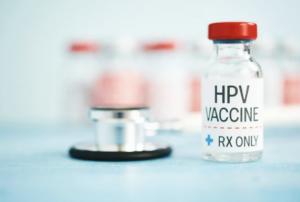PID is a common disease and is increasingly related to your vaginal health and wellbeing – if you are having recurrent infections in your vaginal microbiome, then it more likely that one of these infections will travel to higher up reproductive organs and cause issues such as: infertility, chronic pain & ectopic pregnancies.
What is it?
PID is the infection of one or more of the upper reproductive organs including:
- The uterus
- The fallopian tubes
- The ovaries
- The lining of the inside of the abdomen
- The endometrium
How common is it?
Science is not quite sure as to the actual prevalence of PID, particularly as many are unaware that they have the disease. However, some research statistics are available such as:
- Up to 75,000 people are diagnosed with PID each year in England alone, and this is just a fraction of the actual number, as it is estimated that up to 70% of actual PID cases are undiagnosed.
- Roughly 1 million women in the US get PID each year
What are the symptoms?
According to the NHS, PID symptoms are often mild and go unnoticed.
However, some of the associated symptoms are:
- Pain in the pelvis / lower tummy
- Heavy or painful periods
- Pain during sex
- Pain when urinating
- Abnormal vaginal discharge
There is not a single test for diagnosing PID and it is instead diagnosed based off of your symptoms and gynaecological examination.
What are the implications of PID?
Infertility:
- PID has been shown in some studies to have a drastic impact on fertility — such as one study finding that those with a history of PID has a 5 times greater chance of experiencing infertility than those who did not.
- Importantly, even if you are not experiencing any symptoms, you are still able to experience infertility.
Chronic pain:
- As many as one third of women with PID experience chronic pelvic pain. This is believed to be as a result of raised inflammation and scarring from infections.
Ectopic pregnancy
- PID is one of the leading causes of ectopic pregnancy and research has shown that those who suffer from PID are more likely to develop Ectopic pregnancies.
- This is usually when PID has been left untreated and results in scar tissue developing.
What is PID caused by?
PID is a result of a bacterial infection that has occurred lower down in the vagina or cervix, to spread up to the higher reproductive organs.
There are many different bacteria or infections which can cause PID, including the STIs: chlamydia, gonorrhoea, and mycoplasma genitalium.
These infections and subsequent PID can also be caused by bacteria which normally live in the vagina, but have multiplied to cause an imbalance. You have a higher risk factor if: you have had PID previously, there has been damage following a miscarriage, or you have had a procedure that has involved opening the cervix, or the insertion of an IUD.
Treatment of PID
PID can be treated with a course of antibiotics.
Should you do this, then it is really important both that you finish your course of antibiotics and make sure that should you have a sexual partner, thjat they are treated as well — as infections often pass between partners without them realising.
How can I prevent PID?
Reducing your likelihood of infection is crucial in preventing PID, We outline 2 of the main ways of doing this:
- Protecting against infection
- Your vaginal balance is crucial in determining how protected you are against infections, including the STIs mentioned.
- If your vaginal microbiome is in dysbiosis then you are more likely to have an infection in the lower reproductive organs, which can develop in to PID. This is one of the reasons why it is really important to regularly check your vaginal health and learn how you can improve it.
- We at ScreenMe recommend you check your vaginal health once or twice a year. In this way you are able to check to see if you are susceptible to infections or have an infection in the vaginal microbiome which you may not have symptoms for.
- This is particularly important as PID is often symptomless, so you may not be aware that you are having reoccurring infections.
2. Preventing infection
- You can also minimise your risk of some (but not all) infections. In particular, you can prevent some STIs through practising safe sex such as wearing condoms and getting regular check-ups.
- However, not all infections are sexually transmitted – so you can still develop PID if you are not sexually active!







